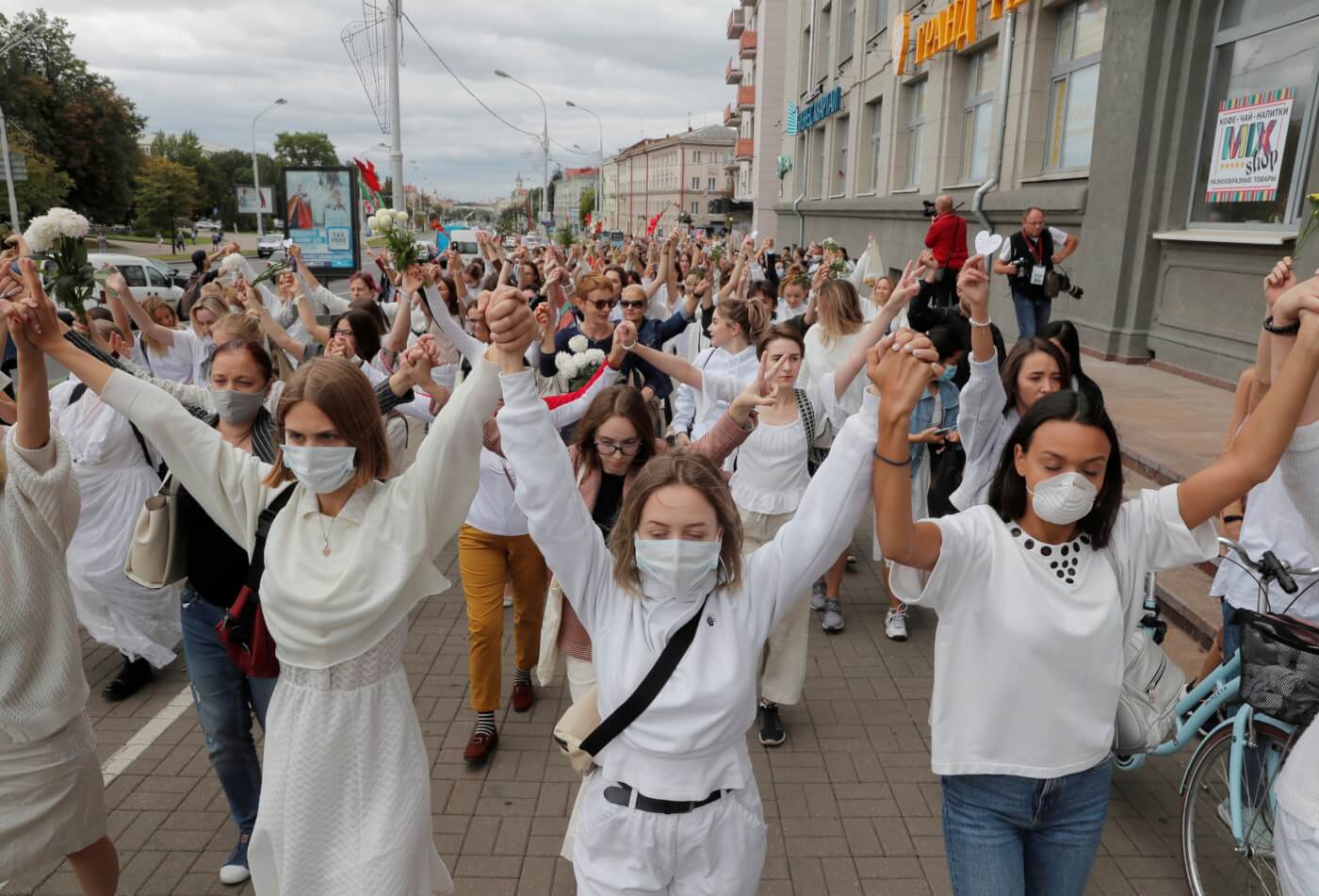A protester has died in Belarus in police custody, the second death since clashes with police erupted on Sunday 9 August after a presidential election which has been condemned by the EU as
“neither free nor fair”.
Often referred to as Europe’s last dictator, Lukashenko has served as President of Belarus for over 26 years, since the establishment of the office on 20 July 1994. International election observers, who have monitored most previous elections but were banned this year, have declared all past elections in Belarus under Mr Lukashenko to be neither free nor fair.
After it was announced that Lukashenko had “won” the election with almost 80 percent of the vote, thousands of protesters hit the streets in Minsk and elsewhere across the country, braving the threat of beatings and detentions. They were met by riot police who used tear gas, rubber bullets, and stun grenades to disperse the protesters. Belarusian authorities also admitted on 12 August to using live ammunition against protesters as news emerged that a second person had died in the unrest.
I was thinking that the protest will decrease today. But no! After being shot and beaten last night, even more, people are showing up. The spontaneous rallies were taking place around Belarus, women initiated marches. Protest is fully decentralized, Hong Kong style pic.twitter.com/UqPcGo8mf8
— Franak Viačorka (@franakviacorka) August 12, 2020
On 12 August, hundreds of women took to the streets of Minsk to vent their anger at the crackdown and across the Belarusian capital, groups of women dressed in white formed human chains, chanting “Shame!” and called on authorities to stop their violent suppression of protesters.
This morning in #Minsk, #Belarus, some 250 women wearing white formed a solidarity chain to support victims of police brutality in the last 3 days of #protests:pic.twitter.com/gADERgi70K
— Alex Kokcharov (@AlexKokcharov) August 12, 2020
At least 200 protesters have been wounded in the protests, some seriously. A BBC crew was also attacked by police on Tuesday evening.
EU foreign policy chief Josep Borrell said Belarusians had shown “the desire for democratic change” in the election campaign.
Violent repression and arrests of peaceful protesters in #Belarus have to stop.
Belarusian people have right to democracy and free and fair elections.
Following closely the developments and working on EU response and EU 27 declaration with Foreign Affairs Council Ministers.
— Josep Borrell Fontelles (@JosepBorrellF) August 11, 2020
The UN has condemned the use of violence by authorities, as protests continued for a fourth night. Sweden’s foreign minister said EU foreign ministers would meet on Friday 14 August to discuss imposing sanctions on Belarus, which were previously lifted in 2016.
Russian President Vladimir Putin was one of the first leaders to congratulate Mr Lukashenko on his victory and the leaders of China, Kazakhstan, Uzbekistan, Moldova and Azerbaijan have sent messages of support.
The UN High Commissioner for Human Rights, Michelle Bachelet, said police officers were reported to have used excessive force, firing rubber bullets and water cannons, and also throwing stun grenades.
“Reports suggest that more [than] approximately 6,000 people have been detained in the last three days, including bystanders, as well as minors, suggesting a trend of massive arrests in clear violation of international human rights standards,” Ms Bachelet said in a statement.
“Even more disturbing are the reports of ill-treatment during and after detention”, she added, calling for the release of all those unlawfully detained. State TV has shown some bruised detainees lined up and being asked if they intend to continue “making revolution”.
According to the UN human rights office, since Sunday’s election, intermittent internet shutdowns, social media platform stoppages, and blocked NGO and news websites have curtailed the right of freedom of expression. More than 50 reporters and bloggers have been detained, with criminal investigations opened against some of them.
Svetlana Tikhanovskaya, a 37-year-old former teacher, stepped in for her husband to become the main opposition contender when he was blocked from registering for the vote and imprisoned. Tikhanovskaya went to the electoral committee on Monday evening to complain about the reliability of the results that gave her just 10% of the vote but was detained for seven hours. She then fled to neighbouring Lithuania.
The International Observatory of Human Rights reported on Svetlana Tikhanovskaya’s campaign, the crackdown on opponents and journalists in the run-up to the election.
The biggest outpouring of dissent during Lukashenko’s 26 years of autocratic rule follows his dreadful handling of the coronavirus pandemic, telling his citizens to protect their health by riding tractors, drinking vodka and taking saunas. A deepening economic crisis, exacerbated by the end of cut-price deliveries of oil and natural gas from Russia, further undermined the president’s grip.

